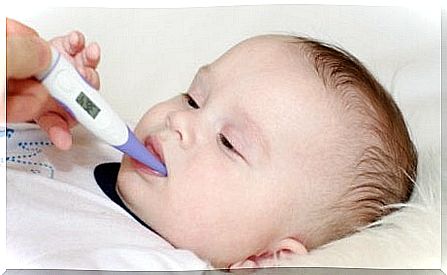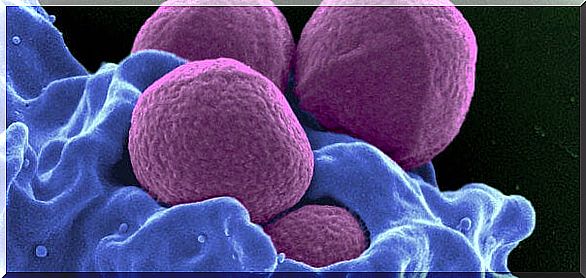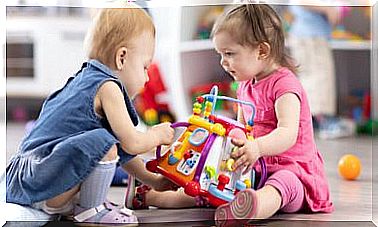Low Neutrophils In Baby: Danger To Your Health!

Neutrophils are a species of abundant white blood cells that come to represent 70% of the leukocytes found in the blood. However, on many occasions low neutrophils are present in the baby. To do?
We are going to teach you how to interpret this marker and how it influences the baby’s health status. This way you will know when to worry and when the solution is simple.
Neutrophils and their importance
The low neutrophils in the baby may be cause for concern for any parent. However, in order to be informed about it, it is necessary to know the subject in depth, taking into account the following:
What are they?
Low neutrophils, also known as neutropenia, correspond to a low number of white blood cells (also called neutrophils), which are found in the body for the purpose of fighting infections. According to a study published in the journal Critical Reviews in Oncoology / Hematology , it can sometimes be caused by a birth defect.
Importance
The neutrophils are extremely important in the body of any person, especially in infants. Thanks to these it is possible to protect children from serious infections that could affect them.
When a bacterial infection occurs in the human body, the first immune cells to detect this attack are the neutrophils, properly reaching the point of infection and thus protecting the baby.
What are the normal values for neutrophils?
To determine if neutrophil values are low, it is necessary to know the appropriate values in a healthy person:
- For babies, the normal value for neutrophils is 1500.
- For its part, the normal value of neutrophils in adults is between 2,000 and 7,500.
If your blood neutrophil count is lower than the one mentioned above, then you can be sure that you have a condition called neutropenia.
This is a form of leukopenia that is associated with a low level of neutrophils in the blood. So you should proceed to find what may be the cause of such a condition and go to a doctor to indicate the appropriate treatment.

Why are low neutrophils present in the baby?
There are numerous causes for finding a low neutrophil count in the blood, which tend to cause low neutrophil production, or which also lead to their destruction after they have been produced.
In both cases, the causes can be associated with various medical conditions or also with habits that are explained in detail below:
Viral and bacterial infections
Some diseases such as HIV, tuberculosis or malaria can be the cause of low neutrophils. However, in many cases the baby could simply have a serious infection that causes neutrophils to deplete quickly.
Medication use
Some medications can cause damage to the bone marrow or directly to neutrophils. Radiation therapy for cancer can also cause neutropenia.
Vitamin deficiency
The vitamin B12 deficiency can cause a condition known as megaloblastic anemia, causing a steady decline in blood neutrophils.
Diseases in the bone marrow
Aplastic anemia, myelodysplastic syndrome, leukemia, and myelofibrosis are capable of significantly reducing neutrophil production.
Congenital disorders
Some disorder in the production of this element can produce low neutrophils in the baby, so it is necessary to review the medical records of the closest relatives to determine this fact.
Placenta problems
The expectant mother can produce antibodies that attack the baby’s neutrophils, which cross the placenta before birth occurs, causing a decrease in white blood cells in the newborn child.
On the other hand, in many cases this decrease occurs without any cause, which indicates that the baby is not sick or does not have any infection.
recommendations
However, it is not necessary to be too alarmed, since many occasions babies tend to present this condition being totally healthy until the first year of life, since it is a transitory state.
Treatment
When neutropenia is not a serious case, it can go away on its own; so that the bone marrow recovers properly and the body begins to produce enough white blood cells.

On the other hand, if it is an infection, the baby’s pediatrician may give him antibiotics; and when the infection subsides, production is able to fully return to normal.
When the neutrophil count is very low and the possibility of this being life threatening exists, different treatments can be applied, according to a study published in the British Journal of Hematology , such as the following:
- Medicines that stimulate the production of white blood cells.
- Antibodies in the blood, through treatments that promote this fact.
What parents need to know
These types of conditions can be adequately controlled if the child does not have bacterial infections; it could be easily solved with the use of antibiotics, logically prescribed by the doctor.
If the child does not present frequent episodes of fever, has already been taken to the doctor and he has determined that it is something temporary, it is not necessary to be alarmed, since in a short time the bone marrow will recover and will be able to return to your normal values; so the low neutrophils in the baby will disappear.
Pediatric hematology control
In case there are no apparent causes for the low neutrophils, it is necessary that the parents continue to carry out a pediatric hematology control. This means that the doctors will carry out a diagnostic protocol and planned controls. In this way, it is recommended that you never miss pediatric consultations and the frequent examinations determined by the doctor for it.
It is important to diagnose low neutrophils early
If each of these care protocols is complied with, it will be possible for the baby to remain healthy until its complete improvement, ensuring that the adequate production of neutrophils is conducive to avoiding diseases.










